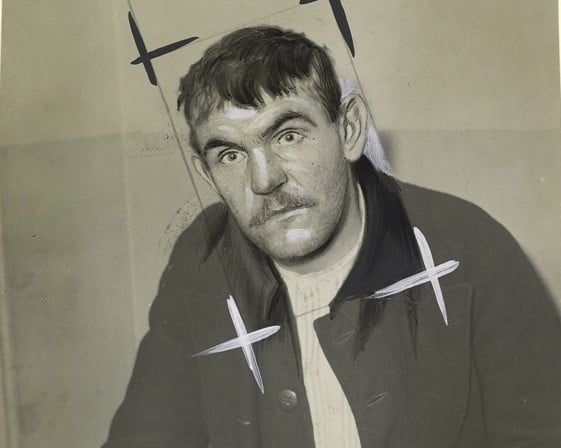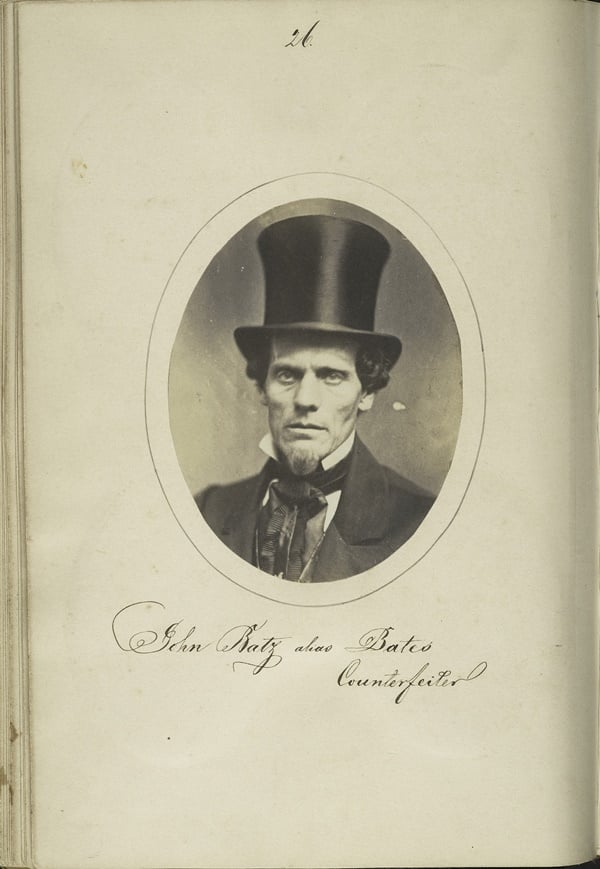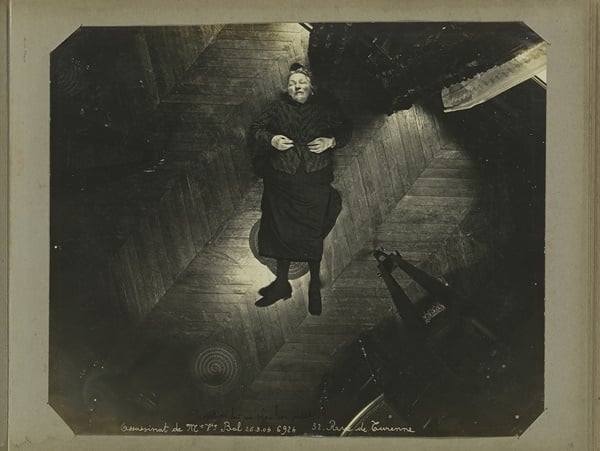Art & Exhibitions
Criminals Strike a Pose at Metropolitan Museum of Art’s New ‘Crime Stories’ Show
The museum is taking inspiration from history's misfits.

The museum is taking inspiration from history's misfits.

Eileen Kinsella


Samuel G. Szabó, Rogues, a Study of Characters (circa 1860).
Image: Courtesy of the Metropolitan Museum of Art.
Andy Warhol was known for mining the criminal world for inspiration and imagery. The artist’s decision to use mug shots of the New York Police Department’s most wanted men for the facade of the 1964 World’s Fair building in Queens sparked a minor uproar at the time. The works were later painted over in silver by concerned organizers, but that didn’t stop Warhol from returning to the subject matter throughout his career.
Warhol’s fascination with tabloid culture included a fascination with celebrity and fame, of course, but it also extended to an interest in violence and crime, an interest that appears to have anticipated some later trends, such as Swann including mug shots in some of its vernacular photography sales.
Now the Metropolitan Museum of Art in New York is getting in on the act, with a show planned for March 7, entitled “Crime Stories: Photography and Foul Play.”

Unknown, French Marius Bourotte (1929).
Image: Courtesy of the Metropolitan Museum of Art.
It will feature roughly 70 works, all drawn from the Met’s own collection and featuring material from the 1850s to the present. According to a statement from the Met, the show will feature everything from “19th-century ‘rogues’ galleries to work by contemporary artists inspired by criminal transgression.”

Alphonse Bertillon, Murder of Madame Veuve Bol, Projection on a Vertical Plane (1904).
Album of Paris Crime Scenes, 1901-1908.
Image: Courtesy of the Metropolitan Museum of Art.
Among the highlights of the exhibit will be Alexander Gardner’s documentation of the aftermath of the Lincoln assassination, forensic photographs by French criminologist Alphonse Bertillon, whose system of identifying criminals evolved into the modern mug shot, and photographs documenting historic events such as Jack Ruby shooting Lee Harvey Oswald following the assassination of US president John F. Kennedy.